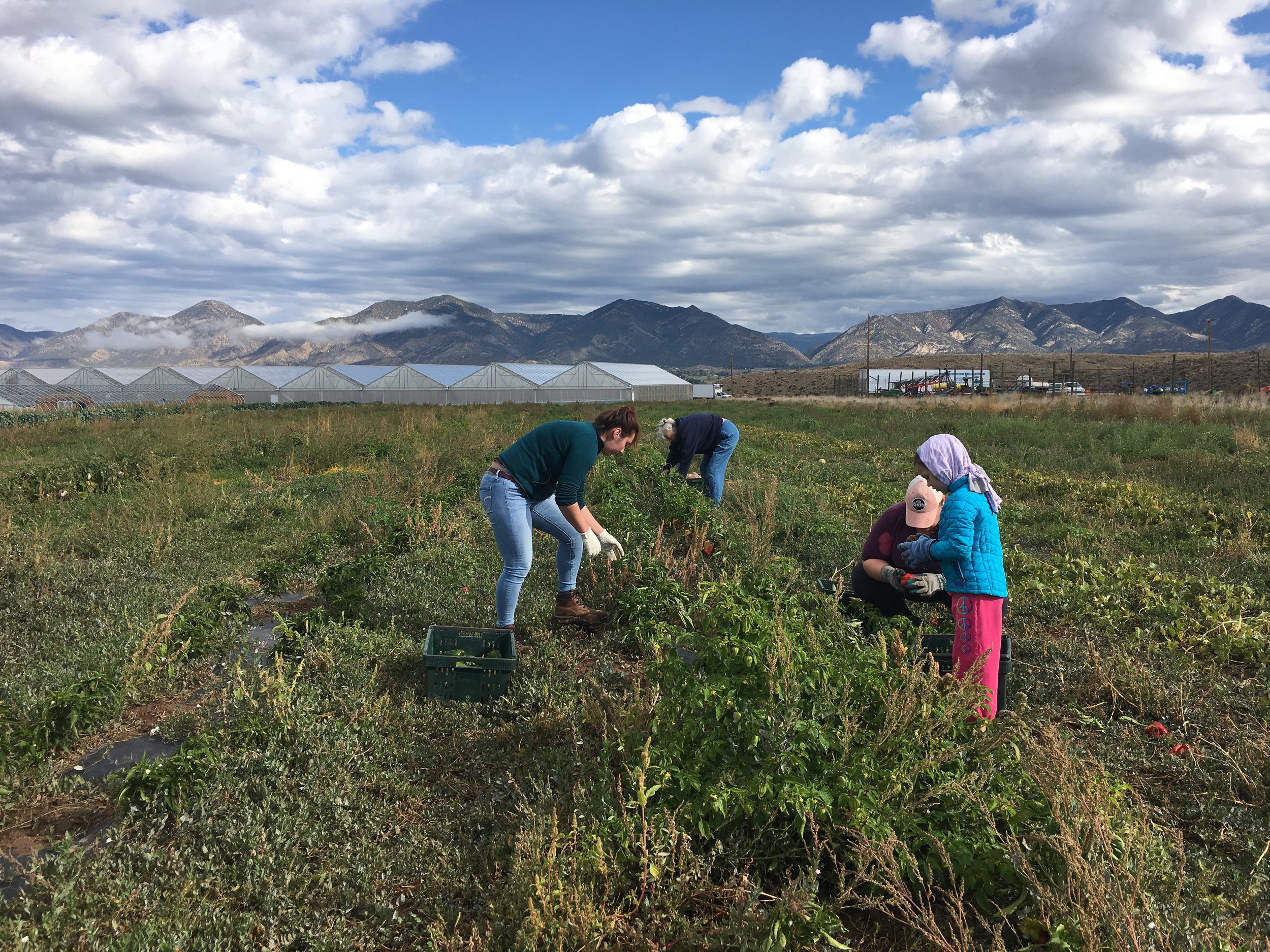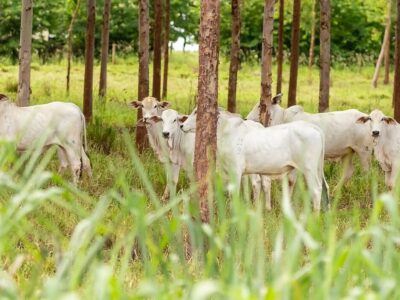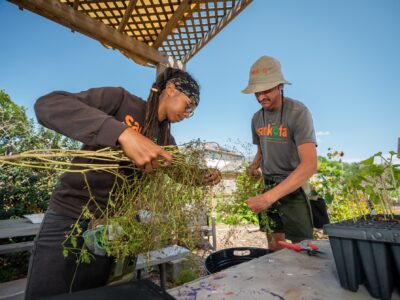UpRoot Colorado is solving food security issues by salvaging extra crops, a process known as “gleaning,” from local farms and redistributing them to hunger-relief agencies across Colorado. Most of the crops are nutrient-dense foods such as kale, spinach, fruits, nuts, and legumes, which means that the nonprofit is not only getting food in the mouths of those who need it the most, the food is healthy and sustainable. In a state where one in three residents is food insecure, the process improves peoples’ lives, reduces waste, and contributes to a more sustainable, circular economy.
Founded in 2017 after a one-day food-waste awareness event in Denver, UpRoot Colorado significantly impacted many families affected by the pandemic. Since its founding, the mostly volunteer-run company has gleaned and distributed more than 100,000 pounds of food, nearly 1 million servings.
The gleaning process is beneficial to farmers as well.
Often, excess crops cannot be sold due to labor shortages, insect or weather damage, or high costs that make it financially difficult to sell the excess. UpRoot gathers this would-be-lost food and puts it to remarkable use.
“Ultimately, gleaning is an act of generosity on the part of the farmer, whose vocation it is to feed people,” said Rita Mary Hennigan, UpRoot co-director. “And so what we’re enabling is farmers to get their surplus food to folks who will eat it when otherwise that food would be tilled back into the earth.”
UpRoot works with 40 farms across 10 counties in the Centennial State. They include metro farms like Denver’s Rebel Farms and organic growers like Rock Bottom Ranch in Basalt. The foodstuffs are distributed to 21 hunger-relief agencies statewide, including Community Food Share in Boulder, Metro Caring and Spirit of the Sun in Denver, and Sharing Ministries Food Bank in Montrose. The organization tries to get the food to the agency closest to the farm to keep carbon emissions to a minimum.
UpRoot hopes to increase nutrition security in Colorado by cultivating a more equitable food system. By doing so, the nonprofit also contributes to economic resilience for many family farmers statewide.
Additionally, the organization continues to present educational events for the public, each designed to teach residents about the life-sustaining power of good food. Most importantly, the audience is reminded of how society has become increasingly disconnected from where our food comes from and easily forgets the work required for farmers to feed us. Many are shocked to learn that 40% of the food produced in America each year goes to waste.“We feel that societally, so many of us eaters have become disconnected from sources of our food due to the industrialization of farming, the increase in size of the average farm, and consolidation of farms,” Hennigan added. “By creating opportunities for volunteers to step onto farm fields again, experience for just a couple of hours what it’s like to harvest food, and experience all the hard work that goes into that, we believe that these connections that our program fosters can benefit the regional and local food system in the longer term.”





